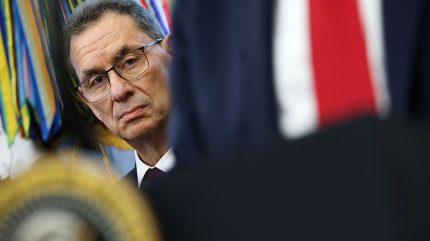
One of the most compelling acquisition sagas in the pharma industry in recent times has come to an end, with Pfizer prevailing over Novo Nordisk in a fierce bidding war to acquire obesity biotech Metsera.
After mulling over competing offers from both Pfizer and Novo Nordisk, Metsera has decided to go with the former’s $10bn offer. As per the agreed merger deal, Pfizer will acquire Metsera for up to $86.25 per share, consisting of $65.60 per share in cash and a contingent value right (CVR) of up to $20.65 per share.

Discover B2B Marketing That Performs
Combine business intelligence and editorial excellence to reach engaged professionals across 36 leading media platforms.
Novo Nordisk said it does not intend to make an increased offer to acquire Metsera.
In a statement, Metsera said it “determined that [Pfizer’s] revised terms represent the best transaction for shareholders, both from the perspective of value and certainty of closing.”
The agreement marks the final chapter in an intense fight, which included lambasting statements and legal retaliation, to buy a company whose technology could unlock the next frontier of the obesity market.
Metsera’s offerings centre around longer-lasting injectable and oral peptides for weight loss. The biotech has developed a platform that allows for less frequent dosing – targeting monthly administration. This would be a significant improvement on the weekly dosing seen with approved weight loss therapies.

US Tariffs are shifting - will you react or anticipate?
Don’t let policy changes catch you off guard. Stay proactive with real-time data and expert analysis.
By GlobalDataThe crown jewel in Metsera’s portfolio is MET-097i, an injectable glucagon-like peptide-1 receptor agonist (GLP-1RA) touted as having the potential for both weekly and monthly dosing schedules. Both frequencies are in Phase II development (NCT06897202 and NCT06973720). Phase IIa data with MET-097i dosed on both a weekly and monthly regimen have demonstrated robust weight loss after 12 weeks.
Not only does the Metsera buyout provide an avenue into the lucrative obesity market, but it also shores up revenue streams as patent expiries loom for Pfizer. The big pharma company is expected to lose market exclusivity for Eliquis (apixaban), Ibrance (palbociclib), and Xtandi (enzalutamide) over the coming years. Blood thinner Eliquis alone generated $13.3bn in global sales in 2024.
Metsera’s choosing of Pfizer means the two companies will continue a relationship that already has well-formed communication channels. Pfizer originally agreed to buy the biotech for up to $7.3bn in September 2025, and for a while it looked like the deal would close without a hitch. However, Novo Nordisk swooped in with an unsolicited bid for up to $8.5bn at the tail-end of October, in what Metsera called a “superior offer”.
Pfizer called the Danish drugmaker’s proposal “reckless and unprecedented” and pointed to a violation of US antitrust laws. As part of its retaliation, the big pharma company filed lawsuits against Novo Nordisk, accusing the Danish drugmaker and Metsera of contractually breaching the merger agreement.
The war of words between the companies even spilled over in the White House. While in the Oval Office announcing new pricing deals for weight loss drugs, Novo’s CEO, Maziar Mike Doustdar, indirectly told Pfizer to bid higher for Metsera if it wanted a deal to go through.
Both Pfizer and Novo wound up placing offers of $10bn on the table, but legal considerations ultimately appear to have been the tipping point. The US Federal Trade Commission (FTC) waved through Pfizer’s bids but found problems with elements of Novo’s approach.
Metsera said in a statement: “In light of recent circumstances, including the receipt by Metsera of a call from the US Federal Trade Commission regarding potential risks from proceeding with the proposed Novo Nordisk structure under US antitrust laws, the Metsera Board of Directors has further determined that the transaction proposed by Novo Nordisk presents unacceptably high legal and regulatory risks to Metsera and its stockholders compared to the proposed merger with Pfizer.”
Pfizer prevailing in the deal means it has been a chastening week for Novo Nordisk. The company has maintained that its merger agreement offer was compliant with antitrust laws, though now it is ultimately reeling from a failed attempt to gain Metsera’s technology for its own pipeline. Novo once again trimmed its 2025 outlook as sales for its GLP-1RAs underwhelmed, with Doustdar’s aggressive M&A strategy evidently an avenue to turn fortunes around. One deal it did push over the line was the $5.2bn buyout of metabolic dysfunction-associated steatohepatitis (MASH) specialist Akero Therapeutics in October 2025.




